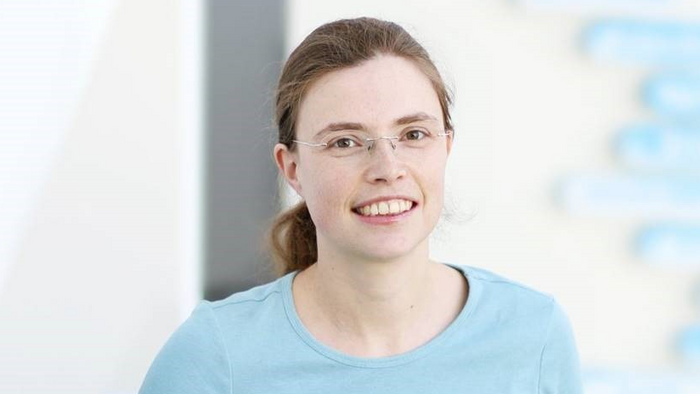Cells are the smallest living entities in our body. Every minute, body cells deform to perform their natural function. For example, the white blood cells of the immune system stretch and extend (elongate) to travel through our body. In order to divide into two daughter cells, each cell in the body takes on a round shape, which then reduces its size (constricts) in the middle. These cellular deformations are a natural process in our body, however, when not performed properly they can result in malfunction and/or diseases. For instance, one applicability of this research is the diagnosis of some forms of cancer.

Credit: BIOTEC
Cells are the smallest living entities in our body. Every minute, body cells deform to perform their natural function. For example, the white blood cells of the immune system stretch and extend (elongate) to travel through our body. In order to divide into two daughter cells, each cell in the body takes on a round shape, which then reduces its size (constricts) in the middle. These cellular deformations are a natural process in our body, however, when not performed properly they can result in malfunction and/or diseases. For instance, one applicability of this research is the diagnosis of some forms of cancer.
“Unlike inanimate materials, which are shaped by external forces, cellular deformations are driven by internal molecular force generators,” Prof. Fischer-Friedrich explains. “Fundamentally, cells are an active material with unusual mechanical properties. The physical forces required to deform a solid material are described in a field of physics called continuum mechanics. To understand how cells regulate their shape, the descriptions of classical continuum mechanics must be extended to include the special properties of the living material of a cell or tissue.” With the purpose of exploring the mechanics of living matter, Prof. Fischer-Friedrich and her international team are developing new quantitative measurement methods of living cells and tissues as well as mathematical modeling.
Prof. Fischer-Friedrich plans to characterize these living materials at the molecular, cellular, and tissue levels. At the molecular level, her team is interested in how the weak molecular bonds of the cytoskeleton respond to mechanical stress and how this affects the molecular architecture of the material. In addition, the team plans to explore how the mechanics and force generation of the actin cytoskeleton are altered when cells undergo disease-induced changes. In another project, Prof. Fischer-Friedrich, collaborates with colleagues from the Faculty of Biology too understand the mechanical properties of the basement membrane of covering tissues and is investigating how this influences the shape development of organs.
Prof. Fischer-Friedrich has been pursuing these research questions as a junior research group leader at PoL since 2019. The Heisenberg professorship now gives her the opportunity to establish her research group in Dresden in the long term and contribute to the teaching activities at TU Dresden, notably through the new Physics of Life Master Program. In this way, young scientists also benefit from cutting-edge research through applied teaching. “We are really happy at PoL that the Heisenberg program recognizes the achievements of our faculty. This is great news for Prof. Fischer-Friedrich, as well as for PoL and TU Dresden” emphasizes Prof. Otger Campàs, Speaker and Managing Director of the PoL Cluster of Excellence.
About Prof. Elisabeth Fischer-Friedrich
Prof. Fischer-Friedrich studied physics in Leipzig and Edinburgh. She was awarded the Otto Hahn Medal of the Max Planck Society for her doctoral research that she conducted at the MPI PKS (Dresden) and the Saarland University (Saarbrücken) in the field of biological physics. After a postdoc at the Weizmann Institute in Israel and Dresden, she has been working as a research group leader at the Cluster of Excellence Physics of Life at TU Dresden since 2019. Her research was awarded the Hertha Sponer Prize of the German Physical Society in 2022. Prof. Fischer-Friedrich was accepted by the German Research Foundation into the Heisenberg Program and has been a Heisenberg Professor at the Cluster of Excellence PoL, in association with the Center for Molecular and Cellular Bioengineering (CMCB) at Technische Universität Dresden since February 2023.
About the Cluster of Excellence Physics of Life
Physics of Life (PoL) is one of three clusters of excellence at TU Dresden. It focuses on identifying the physical laws underlying the organization of life in molecules, cells, and tissues. In the cluster, scientists from physics, biology, and computer science investigate how active matter in cells and tissues organizes itself into given structures and gives rise to life. PoL is funded by the DFG within the framework of the Excellence Strategy. It is a cooperation between scientists of the TU Dresden and research institutions of the DRESDEN-concept network, such as the Max Planck Institute for Molecular Cell Biology and Genetics (MPI-CBG), the Max Planck Institute for the Physics of Complex Systems (MPI-PKS), the Leibniz Institute of Polymer Research (IPF) and the Helmholtz-Zentrum Dresden-Rossendorf (HZDR).
More info: https://www.physics-of-life.tu-dresden.de
About the DFG Heisenberg Program
The Heisenberg Program of the Deutsche Forschungsgemeinschaft (DFG, German Research Foundation) serves to support outstanding young scientists to prepare for a scientific leadership position with the goal of obtaining a long-term professorship. The Heisenberg Professorship provides funding for a temporary professorship (W2 or W3) at a German university and flexible research funding. The Heisenberg Professorship enables scientists to establish themselves as professors at a German university.




